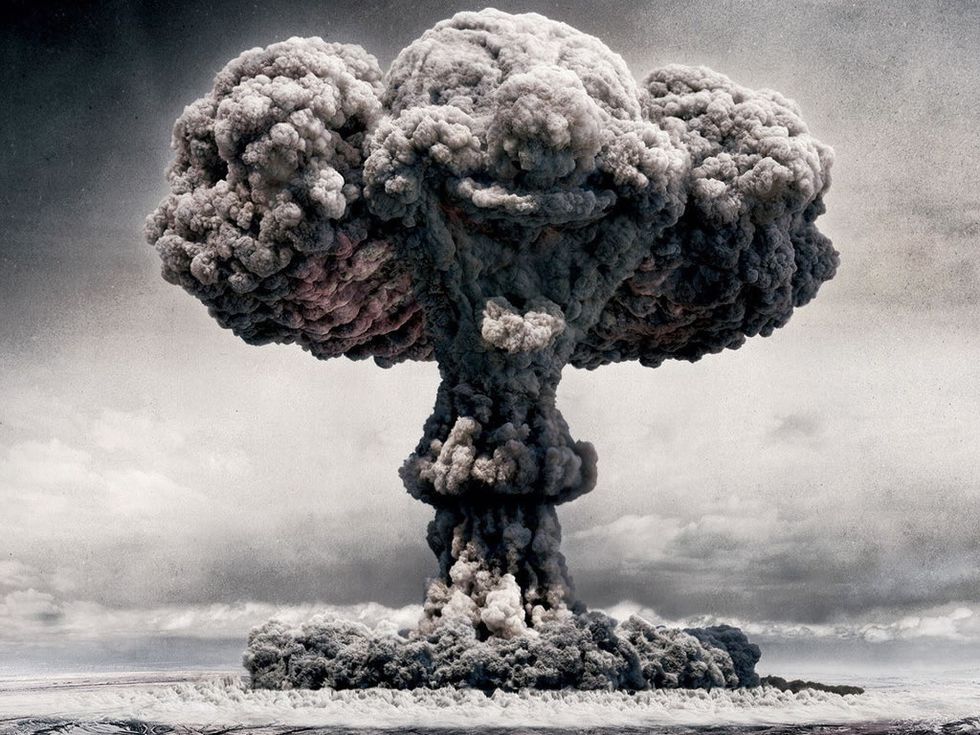North Korea has become a central talking point in tensions with the United States for the past few months. Unfortunately, this narrative is all too familiar. North Korea is still trying to get their ticket to the nuclear weapons club. In 2003, North Korea withdrew from the Treaty on the Non-Proliferation of Nuclear Weapons, and just three years later it had successfully conducted their first nuclear test. This came after a long history of denial. In 1963, North Korea asked the Soviet Union for help building a nuclear stockpile, which the Soviet Union declined. Years later, North Korea would ask China the same question, to which they also declined. Despite not receiving help in terms of creating nuclear warheads, China and the Soviet Union have helped North Korea in terms of its peaceful use of nuclear materials for energy applications. Thus, China and the Soviet Union trained and gave North Korea the knowledge to understand this process of energy creation. By the 1980s, North Korea had developed mechanisms to enrich high levels of uranium, but in 1985 it ratified the Non-Proliferation Treaty.
Despite having ratified this agreement, North Korea would fail to meet its requirements in terms of inspections. By 2002 their relationship with the NPT agreement would fall apart, which led to their withdraw in 2003. Pakistan also admitted in 2002 that in the 1990s they had shared vast amounts of information about nuclear weapons with North Korea. In September of 2016 North Korea conducted a test both of their rocket capabilities and their nuclear power. The underground nuclear test sent out a 5.3 magnitude seismic shock, which is much more than previous test in years past. There is also speculation that the nuclear yield was between 10 and 30 kilotons, which is drastically bigger than the nuclear weapons dropped on Hiroshima.
Today, North Korea continues to aggressively build its nuclear capabilities and claim that they can reach the Pacific coast of the United States with a nuclear tipped missile. As a response, the Trump administration has enacted a zero-sum approach that might result in nuclear destruction. He has said that either China can help the United States by pressuring North Korea towards a grand bargain, or the United States will take unilateral military action against them. Trump meets with Chinese President Xi Jinping this Thursday in Florida to discuss their potential options. This meeting is very important and could determine whether the United States starts another war in South East Asia.
It seems that Secretary of State Rex Tillerson has already ruled out diplomatic channels with North Korea, and has stated that a nuclear first strike is on the table for consideration. Ex-Defense chief Ashton Carter has also stated that he thinks all options should be on the table when considering how to deal with North Korea. Carter also said that this is not the first time these plans have had to be developed. Under the Clinton administration, Carter worked on a pre-emptive strike plan in 1994. This week will define our foreign policy with Asia forever. If China accepts our plea, we will become more bilateral when dealing with South East Asia. But if China declines us, it could possibly mean sparking a conflict with China as well as North Korea. In short, China (or even Russia, for that matter) would not take kindly to the United States launching a nuclear weapon and wiping North Korea off the map. This would break the nuclear taboo and embolden radical responses. We are talking about potentially igniting World War III. Let’s just hope that China hears us out on Thursday.
















